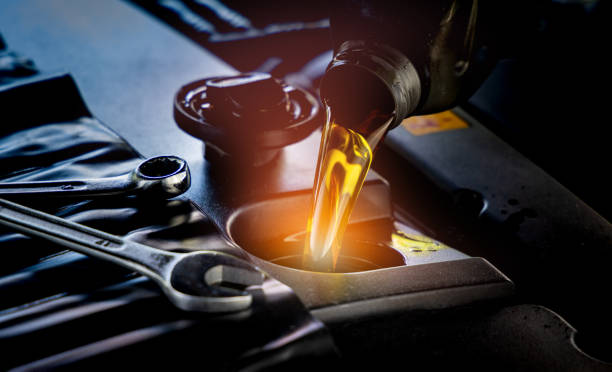May 1, 2024
Why do I need an oil change?
Regular oil changes are essential for maintaining the health and performance of your vehicle. Here are the key reasons why:
- Lubrication: Engine oil lubricates the moving parts of the engine, reducing friction and preventing wear and tear. Without proper lubrication, these parts can grind against each other, leading to engine damage.
- Cooling: As the oil circulates through the engine, it helps to dissipate heat. This cooling effect is crucial in preventing the engine from overheating, which can cause significant damage.
- Cleaning: Engine oil contains additives that help to clean and suspend dirt, debris, and sludge, preventing them from accumulating inside the engine. Over time, these contaminants can clog the engine and reduce its efficiency.
- Corrosion Prevention: Oil forms a protective layer on metal surfaces, preventing corrosion and rust. Regular oil changes ensure that this protective layer remains intact.
- Improved Fuel Efficiency: Clean oil reduces friction and allows the engine to run more smoothly, which can improve fuel efficiency. Dirty or old oil can cause the engine to work harder, reducing fuel economy.
- Extended Engine Life: By reducing wear and tear, preventing overheating, and keeping the engine clean, regular oil changes help to extend the overall lifespan of your engine.
- Warranty Maintenance: Many vehicle warranties require regular oil changes as part of the maintenance schedule. Neglecting oil changes can void your warranty and lead to costly repairs.
In summary, regular oil changes are a small investment that can save you from expensive repairs, improve your vehicle’s performance, and ensure a longer lifespan for your engine.
When should I get an oil change?
The frequency of oil changes depends on several factors, including the type of vehicle, the type of oil used, driving conditions, and the manufacturer’s recommendations. Here are some general guidelines to help you determine when to get an oil change:
- Manufacturer’s Recommendations: Always refer to your vehicle’s owner’s manual for the manufacturer’s specific oil change intervals. Most modern vehicles suggest oil changes between 5,000 to 7,500 miles. Some vehicles, especially those using synthetic oil, may recommend oil changes every 10,000 to 15,000 miles.
- Type of Oil:
- Conventional Oil: Typically, oil changes are recommended every 3,000 to 5,000 miles.
- Synthetic Oil: Synthetic oil can last longer, often between 7,500 and 10,000 miles, and in some cases, up to 15,000 miles.
- Driving Conditions:
- Severe Conditions: If you frequently drive in harsh conditions—such as extreme temperatures, heavy traffic, short trips, dusty or dirty environments, or while towing—you may need to change your oil more often, even if you use synthetic oil. In such cases, it might be necessary to change the oil every 3,000 to 5,000 miles.
- Normal Conditions: If you mostly drive on highways and in mild conditions, you can likely follow the longer intervals recommended by your vehicle manufacturer.
- Oil Life Monitoring Systems: Many modern vehicles come equipped with oil life monitoring systems that alert you when it’s time for an oil change. These systems use algorithms based on driving habits and conditions to determine the optimal time for an oil change.
- Time-Based Interval: Even if you don’t reach the mileage limit, it’s generally recommended to change the oil at least once every six months to a year. Oil degrades over time, even if the vehicle is not driven much.

